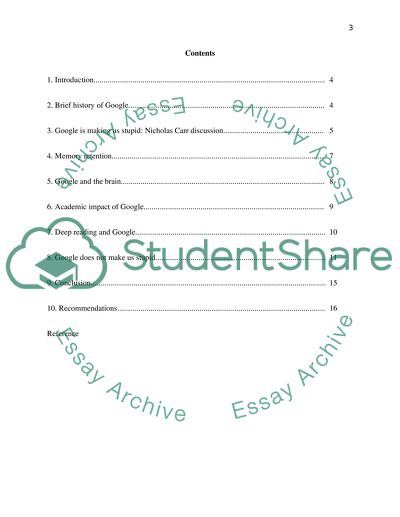Cite this document
(“Does Google Make Us Stupid Essay Example | Topics and Well Written Essays - 3250 words”, n.d.)
Retrieved de https://studentshare.org/information-technology/1393036-does-google-make-us-stupid
Retrieved de https://studentshare.org/information-technology/1393036-does-google-make-us-stupid
(Does Google Make Us Stupid Essay Example | Topics and Well Written Essays - 3250 Words)
https://studentshare.org/information-technology/1393036-does-google-make-us-stupid.
https://studentshare.org/information-technology/1393036-does-google-make-us-stupid.
“Does Google Make Us Stupid Essay Example | Topics and Well Written Essays - 3250 Words”, n.d. https://studentshare.org/information-technology/1393036-does-google-make-us-stupid.


